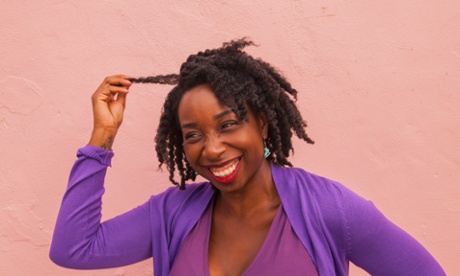
When Destiny Ekaragha was pitching her first feature film, the comedy Gone Too Far, investors were baffled. “I don’t understand why the two main characters don’t kill each other,” one of them said to her. “It’s set in Peckham, it’s got black kids in it – where is the knife and gun crime?”
Based on Bola Agbaje’s Olivier award-winning play of the same name, first performed at the Royal Court in 2007, the film is unabashedly light-hearted. It tells the story of two brothers, one raised in Peckham and one in Nigeria, who meet each other for the first time – cue culture clashes and jokes about socks and sandals.
“The film does deal with some social issues, but essentially it’s a comedy,” Ekaragha says. “Spike Lee’s Do the Right Thing was a huge reference for me. I love its colour palette: black people in the sunshine. That’s how I remember growing up on an estate, it was bright and colourful to me. I don’t remember this grey, gritty, urban London.” This side of estate life is rarely shown on screen. Ekaragha puts this down to a risk-averse film industry: “In the UK nobody wants to come first, everyone wants to come second. They want to watch somebody take that risk, and then do it.”
When she saw Agbaje’s play, she instantly recognised the issues and experiences she had faced when growing up in New Cross, south-east London. Born to Nigerian parents, Ekaragha only met her 25-year-old brother, Thomas, when she was a teenager. “These stories had never been told,” she says. “I’d never seen them on stage, on TV, on film. So I was really excited, I was like, oh my god, this is my story.”
We meet in nearby Deptford, where Ekaragha now lives. She is immediately warm and friendly, buoyed with energy at the prospect of the release of her first feature film at the age of 32. Back in 2008, her eight-minute short film, Tight Jeans, put her in the public eye: film critic Jason Solomons called it the best short film of the last decade and it was selected for the London film festival.
She hasn’t had a holiday since, releasing two more shorts before taking on Gone Too Far. “I didn’t rest. I’d seen too many VH1 ‘Behind the Music’ specials to know that buzz and hype doesn’t last, so I started my next film immediately.”
A recent article in Sight & Sound said she is only the third black female director in Britain to make a feature-length film, a figure she finds depressing. “Are we saying black women don’t make films? That’s ridiculous. We’ve all got stories and they deserve to be told. I hope we reach double digits by next year.”
She believes that it’s important to be aware of institutional prejudice, but not to let it grind you down. “I’m not just black, I’m a woman, so there are two glass ceilings I have to break every time I open my mouth. But if I wake up in the morning and think, ‘Oh my God, I got two ceilings I’ve got to smash today’, that’s no way to live. I’m serious when I have to be; other than that I talk about food a lot and watch Netflix.”
When she is having her photo taken, she has fun with it: she jokes around, jumps, and poses. The same sense of humour shines through in her work. “I think sometimes laughter is the best way to talk about serious issues, because it stays in your head longer. Dramas are great and I’d like to do one, but at the moment I’m loving laughter.”
Gone Too Far is released on 10 October

